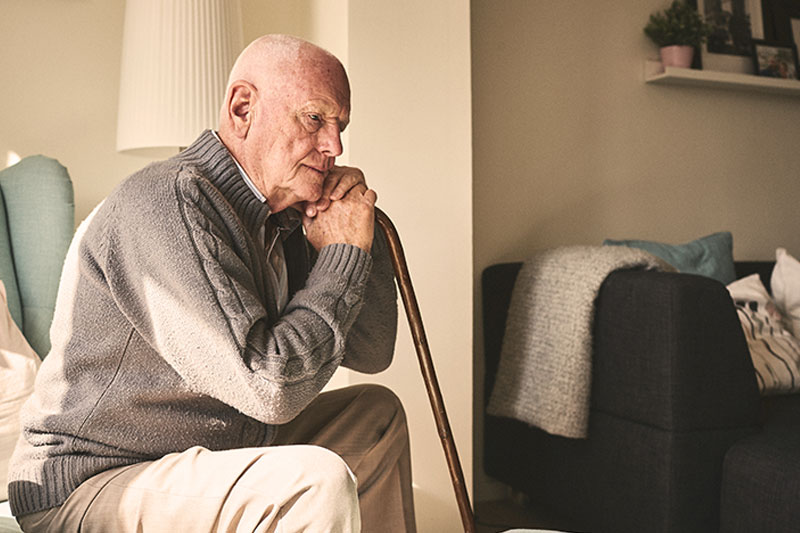
Reducing the risk of depression among seniors is essential for overall health and wellness.
After spending time with relatives and revisiting beloved traditions and memories throughout the holiday season, it’s typical for a sense of nostalgia and sorrow to set in for older people. And while some degree of short-term post-holiday disappointment can be expected, it is crucial to understand that it could grow into depression. Depression is a serious mental health condition that is common for seniors, but is not a normal part of aging.
How can you tell if an older person you love has become depressed – and, what can you do to provide support?
First, it is important to understand the risk of depression, including:
- Loneliness and isolation
- A sedentary lifestyle
- Stress
- Chronic health issues
- Sleeping problems
- Addictions
- A family history of depression
If a senior you love fits into any of those categories, or if you’re simply worried that the senior may be on the verge of depression, watch out for these red flags:
- Prolonged feelings of low self-esteem, anxiety, guilt, hopelessness, emptiness, or sadness
- Restlessness, fidgeting, or irritability
- A lack of interest in interacting or engaging in previously-loved activities
- Tiredness and listlessness
- Changes to eating or sleeping habits
- Difficulty with memory, decision-making, or concentration
- Thoughts or discussions about the topics of death or suicide
If you suspect depression in someone you care about, take action immediately. Depression must not be brushed off as something the person has to “get over.” It’s a chronic condition that requires medical help.
The doctor will need to evaluate the senior, and can then put together a treatment strategy, that might include:
- Medications: There are effective prescriptions available that can make a huge impact on how the older adult feels by balancing mood-affecting hormones.
- Talk Therapy: A psychologist or other licensed mental health care professional can help the senior talk through feelings and utilize treatment approaches such as cognitive-behavioral therapy.
- Brain stimulation: If a loved one isn’t responding well to conventional therapeutic treatments for depression, ECT or rTMS might be considered, which use electrodes or magnets to impact the brain directly.
Additionally, there are steps you can take to help prevent depression in the seniors you love, such as by encouraging:
- Socialization and engagement in pleasurable activities, including exercise. (Participating with the elderly individual will offer further motivation and assistance.)
- Following a balanced and healthy diet and getting at least seven hours of sleep every night.
- Communicating about their mental health worries and needs.
An in-home caregiving companion from Live Free Home Health Care, experts in Concord home care, can be incredibly beneficial for seniors who are at risk for or experiencing depression. Our care providers are fully trained and experienced in meeting an array of senior care needs in the home, while offering cheerful companionship to give socialization a boost and to bring a spark of happiness to every day.
Give us a call at 603-217-0149 for a no-cost in-home consultation and for additional details on how we can help enhance overall health and wellbeing for the seniors you love with customized care in the home. For a full list of all of the communities where we provide care, please visit our Service Area page.
